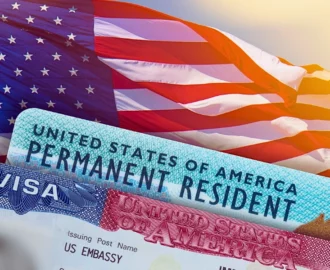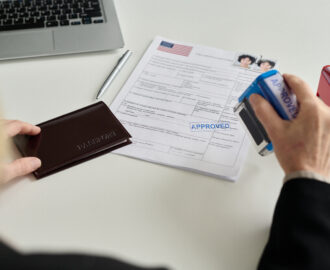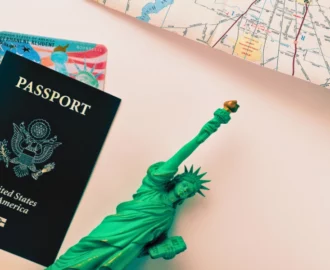Uncertainty surrounding the future of various visas to the United States is prompting many legal permanent residents to pursue American citizenship. For people wishing to remain in the US long-term, pursuing citizenship is a good decision that will provide a solid layer of insulation against what could be a significant chill on the number of H-1B and other visas issued by the government.
Eligibility for Citizenship
Individuals must be able to prove that they were a permanent resident or held a Green Card for at least five years immediately prior to the date they file their application for naturalization. Moreover, applicants must be able to show that they were within the US for at least 1/2 of that time (30 months.)
In addition to establishing residency, individuals are required to demonstrate basic proficiency in English, a basic understanding of US history and government, and they must be willing to swear an oath of allegiance to the United States.
“Good Moral Character”
One of the most confusing elements of the eligibility requirements is the “good moral character” clause. Essentially, this means a person without any serious criminal convictions on their record. Individuals who have minor offenses such as speeding, shoplifting, minor in possession, etc., may still be eligible depending on the seriousness of the offenses and how long ago they occurred. It is important to discuss any criminal convictions with a Chicago immigration lawyer prior to filling out the N-400 application.
Tests, Interviews, and Documentation
The application is just the first step in the process. Once the application has been submitted, individuals must submit their biometric data which includes their photo, fingerprints, and signature.
This step is followed by a naturalization interview during which the USCIS officer will inquire about an individual’s family, work, background, etc. At this stage, applicants also need to pass a basic English and Civics exam. There are programs and classes that can help prepare individuals to pass both of these exams.
The final step of the process requires individuals to take the Oath of Allegiance. Once this step is completed, a representative of the USCIS will present the individual with a Certificate of Naturalization. At this point, the applicant no longer needs to worry about any legislative changes to the H-1B or other visa programs because they are formally a US citizen with all the rights and responsibilities that come with it. From start to finish, the process can take between 6 months and 1 year to complete.




